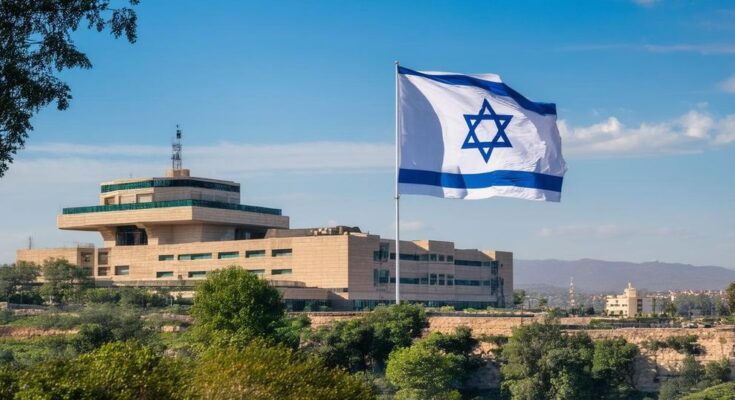Eswatini is reportedly considering the reopening of its Israeli embassy which was closed in 1994. As Israel navigates international criticism and isolation, Eswatini appears to strengthen ties with Tel Aviv, although this move is met with significant domestic opposition given historical and political contexts surrounding Israel’s actions in Gaza and the broader implications for regional relations.
The Kingdom of Eswatini, a small monarchy in Southern Africa, has maintained diplomatic relations with Israel for over fifty years. Amid Israel’s increasing international isolation due to its actions in Gaza and Lebanon, reports suggest that Eswatini may be strengthening its ties with Tel Aviv, potentially leading to the reopening of an Israeli embassy that was closed in 1994. At present, Israeli diplomatic activities concerning Eswatini are being conducted from South Africa, where relations between Israel and the South African government are notably strained due to South Africa’s critique of Israel’s policies. The principal secretary at Eswatini’s Foreign Ministry, Newman Ntshangase, indicated that discussions regarding the Israeli embassy are underway at a high level, although they remain in preliminary stages. He emphasized that any decision would be made through a process of mutual consent between the two nations. In previous statements, both NTshangase and Percy Simelane, a spokesperson for King Mswati III, highlighted Eswatini’s sovereign right to choose its diplomatic partners without the need for external approvals. However, there is significant opposition to closer ties with Israel among certain sectors within Eswatini. Thokozane Kunene of the Communist Party of Swaziland criticized the notion of an embassy’s return, claiming that Israel has historically supported the Eswatini government in maintaining its power and suppressing dissent. He asserted that any collaboration with Israel signifies an alignment with its controversial policies. Resistance also comes from academics such as Petros Qambukusa Magagula, who cautioned that such a move may imply an endorsement of Israel’s actions in Gaza, leading to potential repercussions from the Arab world. Simelane dismissed these concerns, asserting that Eswatini’s stance as a member of the Non-Aligned Movement would remain intact despite any developments regarding the Israeli embassy.
The development of relations between Eswatini and Israel is marked by historical ties that date back to the establishment of diplomatic relations more than fifty years ago. The Israeli embassy in Mbabane was closed in 1994, after which diplomatic affairs have been managed from South Africa. Recently, the geopolitical situation, specifically regarding Israel’s treatment of Palestine, has influenced global actions and perceptions, complicating Israel’s diplomatic strategies in Africa, particularly in light of South Africa’s strong opposition to Israeli policies. The potential reopening of the embassy reflects both geopolitical maneuvers regarding international alliances and Eswatini’s internal political considerations.
In summary, while discussions regarding the movement of the Israeli embassy to Eswatini are reportedly ongoing, the situation embodies deeper implications for Eswatini’s foreign policy and domestic politics. The decision will have a significant impact on Eswatini’s relations with both Israel and the Arab world, amidst strong opposition from various local entities that question the moral and democratic ramifications of such diplomatic engagement. Further developments are awaited as authorities from both countries negotiate the potential return.
Original Source: www.middleeastmonitor.com




